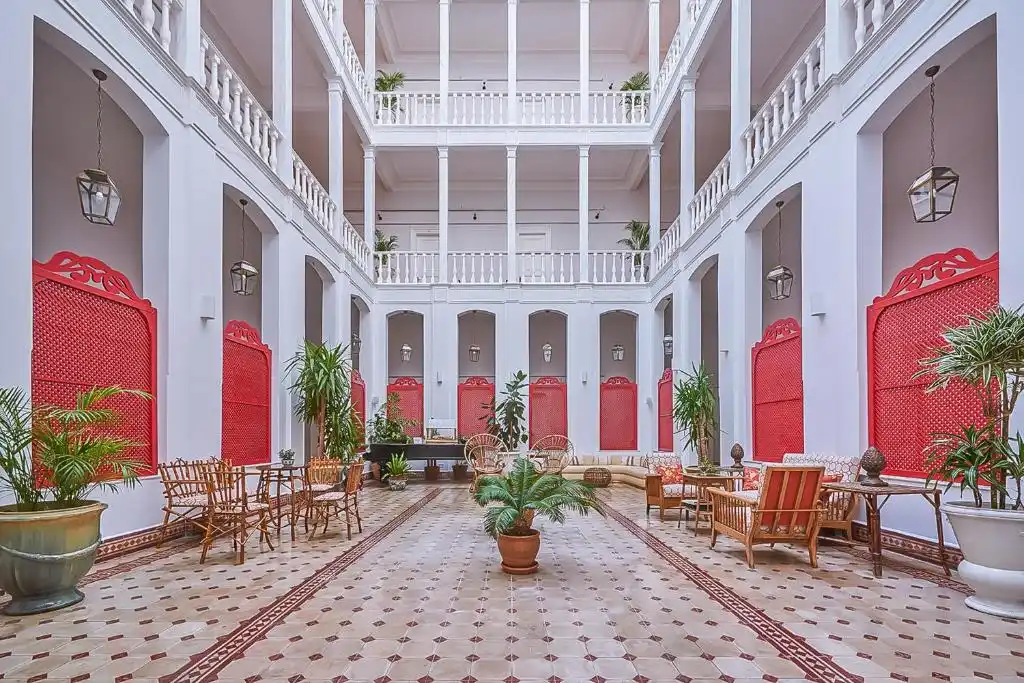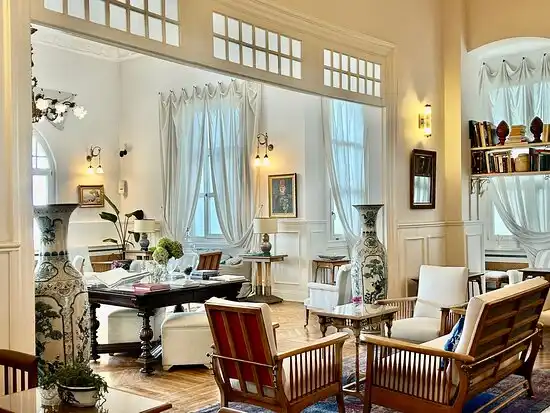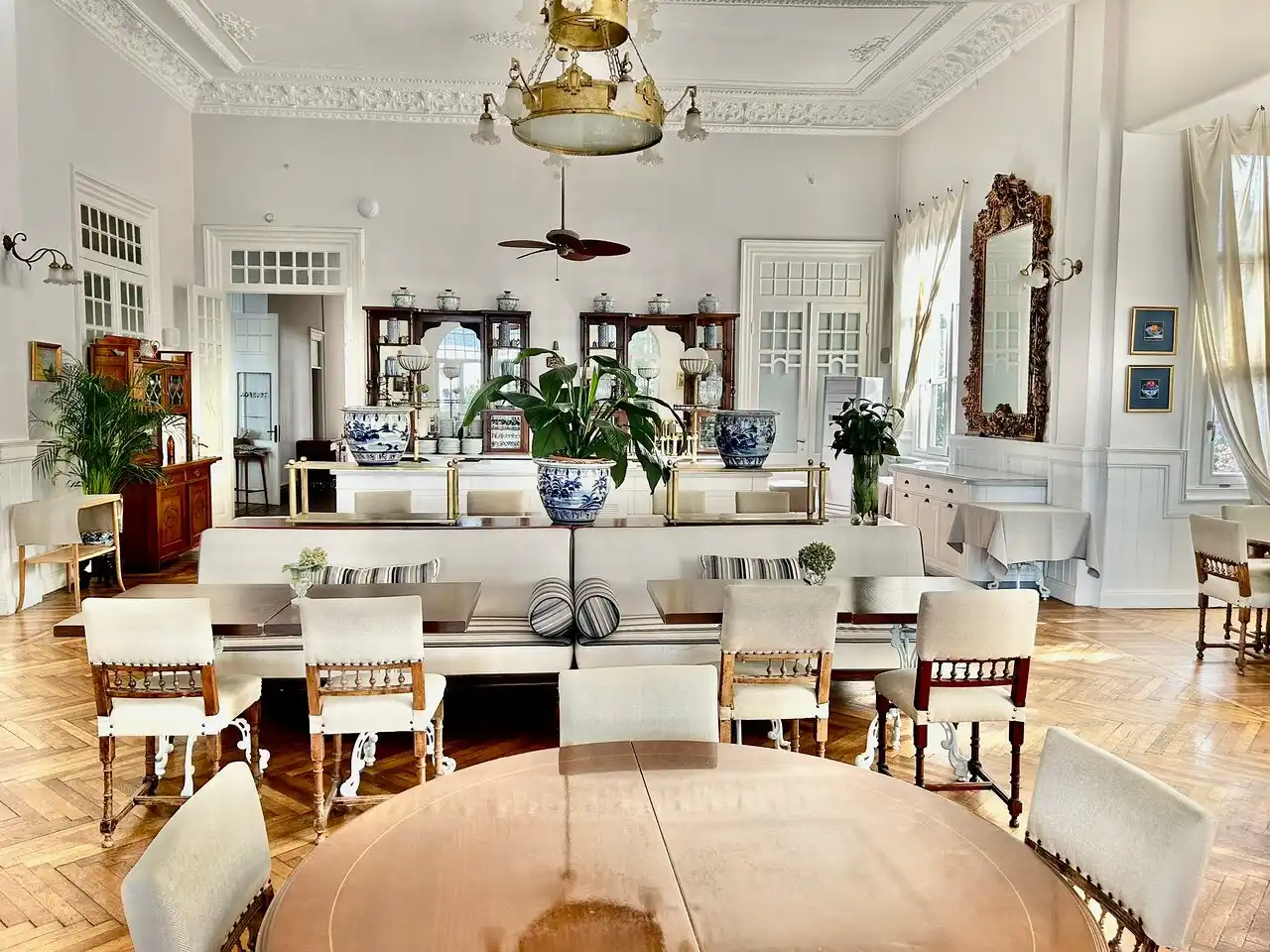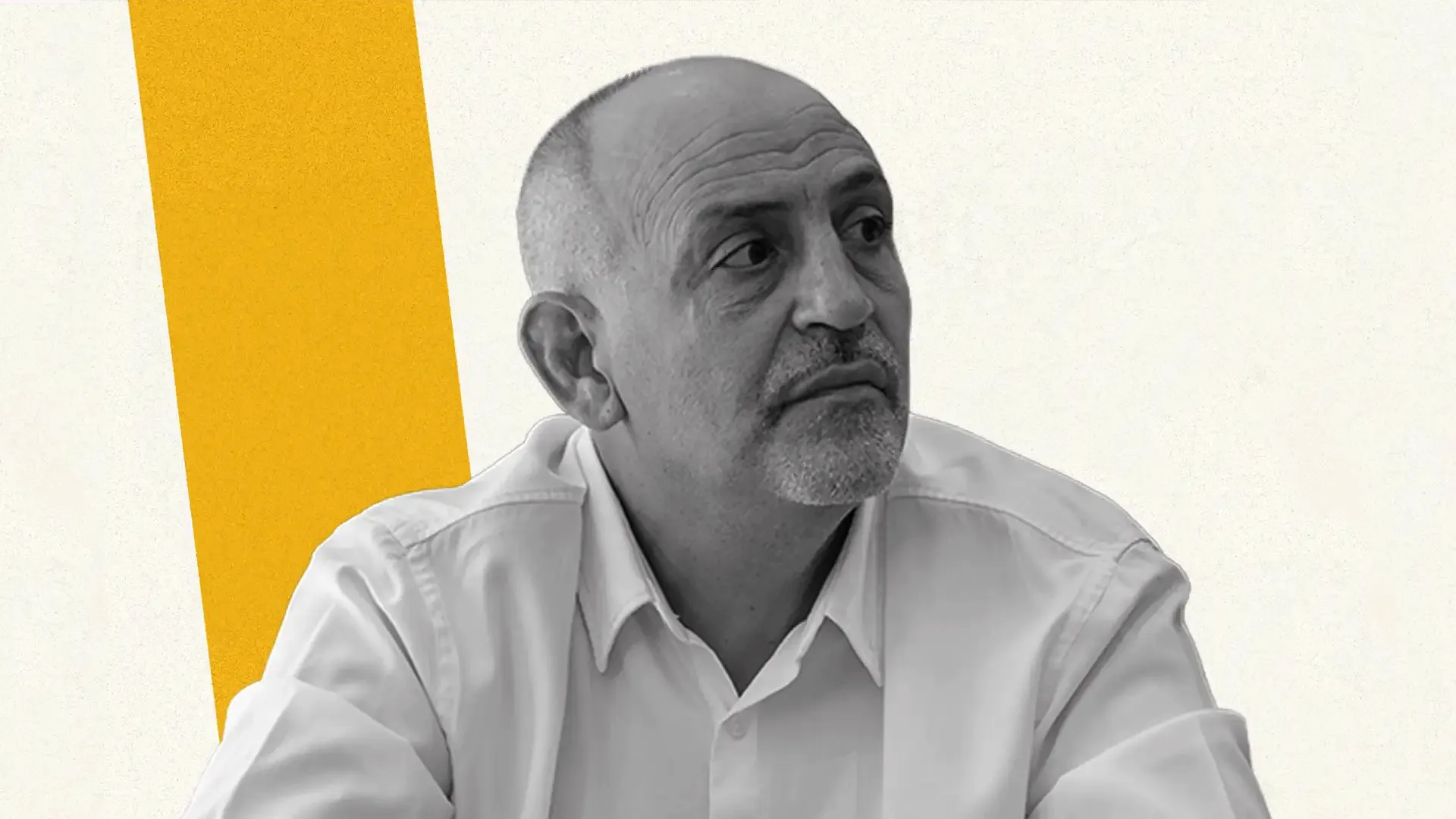Trotsky’s ‘Island Of Peace And Forgetfulness’ Is Still Beautifully Lost In Time
It’s not hard to see why so many writers have been drawn to Büyükada over the years. Time moves slowly here; life keeps pace with the gently lapping waters of the Marmara Sea. Pine-forested hillsides tumble down to rocky coves, and grand clapboard mansions line bougainvillea-strung lanes. For centuries, those in search of respite from the frenetic pace of Istanbul – just five miles across the water – have come to the island to find the perfect conditions for reflection. But of all the writers and intellectuals to have lived there, the best-known is Leon Trotsky, who famously described Büyükada as “an island of peace and forgetfulness”.
“A fine place to work with a pen, particularly during autumn and winter when the island becomes completely deserted and woodcocks appear in the park,” he noted in a 1933 essay. “Not only are there no theatres here, but no movies. Automobiles are forbidden. Are there many such places in the world?” Though the mansion in which the Soviet revolutionary lived for four years in the 1930s – where he penned his autobiography and, when not writing, spent his days on the nearby shores catching lobster and befriending local fishermen – is today a jumble of red-brick ruins, in some ways Büyükada has remained preserved in amber since Trotsky’s time: still no cars, still no cinemas or theatres.

Büyükada is the largest of nine islands that make up a small archipelago known as the Princes’ or Adalar Islands, the former a name from Byzantine times, when the islands were a place of exile for royalty who had fallen from favour. In the Ottoman era, Büyükada transitioned from a place of banishment to a refuge for the wealthy fleeing plague-stricken Istanbul. By the 19th century, steam ferries were transforming the island into a fashionable resort, attracting the bourgeoisie of Constantinople – particularly Greeks, Jews and Armenians – who built lavish wooden summer villas known as kosks.
These homes were clustered in and around Büyükada town, a lively settlement that spreads across the island’s northern tip. It’s here that visitors arrive via regular boat services from the mainland, deposited at an extravagantly tiled ferry terminal that dates back to the island’s Ottoman heyday. Many rent bicycles in the town to explore Büyükada on two wheels. Scenic vistas can be enjoyed from any of the small roadside cafés, where riders cool off with a glass of freshly squeezed pomegranate juice.
Best Of Büyükada – How To Do Istanbul’s Favourite Island Escape
EAT/DRINK There are plenty of low-key seafood restaurants. Family-run Köfte & Piyaz serves only three dishes: soup, spiced meatballs (köfte) and silky white bean salad (piyaz). Taş Fırın is popular for pide (pizza-like Turkish flatbreads); next door is Büyükada Bakery for syrup-drenched baklava and sugar-dusted börek pastries.
STAY The Splendid Palace (from €210). The just-opened Princes’ Palace (from €652), on Çankaya Caddesi, is a family-run resort centred around a grand 19th-century wooden villa, with 70 rooms and a spa.
GETTING AROUND Mini electric buses circle the island. Buy tickets at the main ferry terminal. Fehmi Bisiklet (+90216-382 5703) has e-bikes for 500 Turkish lira (£10) an hour – enough time for a spin around the island, which is just 2.6 miles long.
The general feel of Büyükada toggles broadly between Coney Island and the Hamptons, depending on when and which bits you visit. On weekends and holidays, it throngs with day-trippers. Young couples stroll hand in hand along sunny, oleander-lined avenues, hikers amble up winding hillside paths and families set up camp on loungers by the sea. While the beaches might be some of the best within easy reach of Istanbul, with temptingly glassy azure waters, visitors might be disappointed if they seek secluded coves and empty sands. The island’s real charm lies in its air of aristocratic distinction, as expressed by the splendour of its architecture.

The Island’s Real Charm Lies In Its Air Of Aristocratic Distinction
“It was the first real Ottoman summer resort; people describe it as Turkey’s Capri,” says Büke Uras, an architect who has written several publications about the history of Büyükada, where he spent all his childhood. “And as a summer resort, it had a much more secular identity than Istanbul did. Turkish women would take off their veils when visiting, which they would never have been able to do in the city.” He says this laissez-faire attitude is also reflected in the island’s unique architectural vernacular. “Everything is loose here. A strict architectural protocol never existed like it did in Istanbul, where religion and state really dominated the built environment.” Many of the most impressive mansions are to be found along Çankaya Caddesi, a leafy avenue stretching out along the island’s northern tip. The houses form a fantastical parade of wooden turrets, gables and balconies dripping in elaborately carved bargeboards and balustrades. Among the most striking is Mizzi Köşkü, the former home of Maltese lawyer Lewis Mizzi, who enlisted the art nouveau architect Raimondo d’Aronco to design his stately red-brick mansion, and commissioned an observatory tower for stargazing.
But no single structure expresses the island’s distinctive character quite like the Splendid Palace Hotel, a 69-room wedding cake of a building perched on a hillside above the harbour that dates back to 1908. Its gleaming white clapboard exteriors are punctuated with crimson shutters and topped with two elegant domes, a design inspired by Nice’s Le Negresco hotel and Cannes’ Hotel Splendid. Its founder, Kâzım Pasha, was an Ottoman war hero. Greatly impressed by the grandeur of the hotels he visited on his tours around Europe, he bought a plot on Büyükada after retiring and brought in architect Kaludis Laskaris to build him something fit for the French Riviera.
Everything Is Loose Here
Its first years were tumultuous: the hotel served as a hospital during the Balkan Wars and was occupied by the British in 1919. But after these initial disruptions, it relaxed into its role as a playground for the international elite, welcoming an illustrious roster of guests including Wallis Simpson and Edward VIII and Maria Callas. Despite its glamorous heritage, it remains pleasingly unflashy, its charm the result of forgoing newfangled amenities and mod-cons. “People often say we remind them of Wes Anderson’s Grand Budapest Hotel,” says fifth-generation owner Serra Taşkent, who brought in Athens-based Studio Noor to give the hotel a comprehensive refresh in 2015. Project leader Luc Lejeune perused photographs and references from the hotel’s archives before restoring many of the original features, reconditioning chandeliers and stripping out all the 1980s furnishings, replacing them with meticulously restored early-20th-century pieces he found hidden away in attics and storerooms.
Today the hotel boasts a restaurant, an outdoor pool surrounded by lush gardens and a terrace where guests are treated to views of the Istanbul skyline with their apéro. But its most popular new addition is the small on-site boutique. “People wanted something to remember their stay, so they kept stealing things like ashtrays and pillow cases,” says Taşkent. “We thought a good way to put a stop to that was to provide them with a proper souvenir that they could buy.”

The range now includes collaborations with various upmarket Turkish makers, including bag brand Marché and art nouveau-inspired ceramics by Istanbul-based Gorgo Iruka. But the bestseller is the range of colourful scarves created in collaboration with Rumisu, which come decorated with playful illustrations of the hotel. The White Lotus star Walton Goggins bought one on a stay at the Splendid Palace last year. “When I watched the Architectural Digest video tour of his home in New York, I saw he had framed it and put it on the wall,” says Taşkent. Small wonder that Goggins, like so many before him, wanted a memento of his time on Büyükada. It’s a place that lingers in the imagination, memorable not just for its graceful architecture and storied past, but for its atmosphere of timeless glamour – vanishingly rare these days, in Turkey and beyond. Hester Underhill was a guest of Splendid Palace Büyükada
References: ft.com















